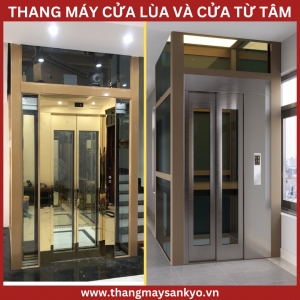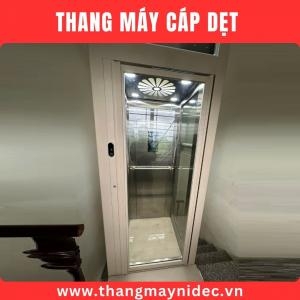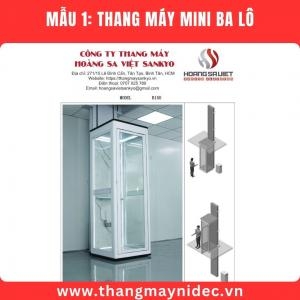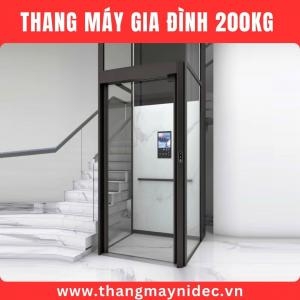The system is processing. Please wait a moment!
- Home Knowledge & Experience Sharing Experience and Knowledge About Elevators
Elevator Inspection and 5 Important Notes
TABLE OF CONTENTS
- Why elevator inspection?
- Regulations on elevator inspection
- Elevator inspection form
- Periodic elevator inspection period according to elevator usage phase
- Update current elevator inspection prices
- Cases requiring elevator technical safety inspection
- Elevator inspection process
- Important notes when inspecting elevators
In the management and use of elevators, especially in buildings, elevator inspection plays an important role, not only to ensure safety and compliance with legal regulations but also to determine the reputation and image of the organization or business. Moreover, it helps to minimize risks and related costs.
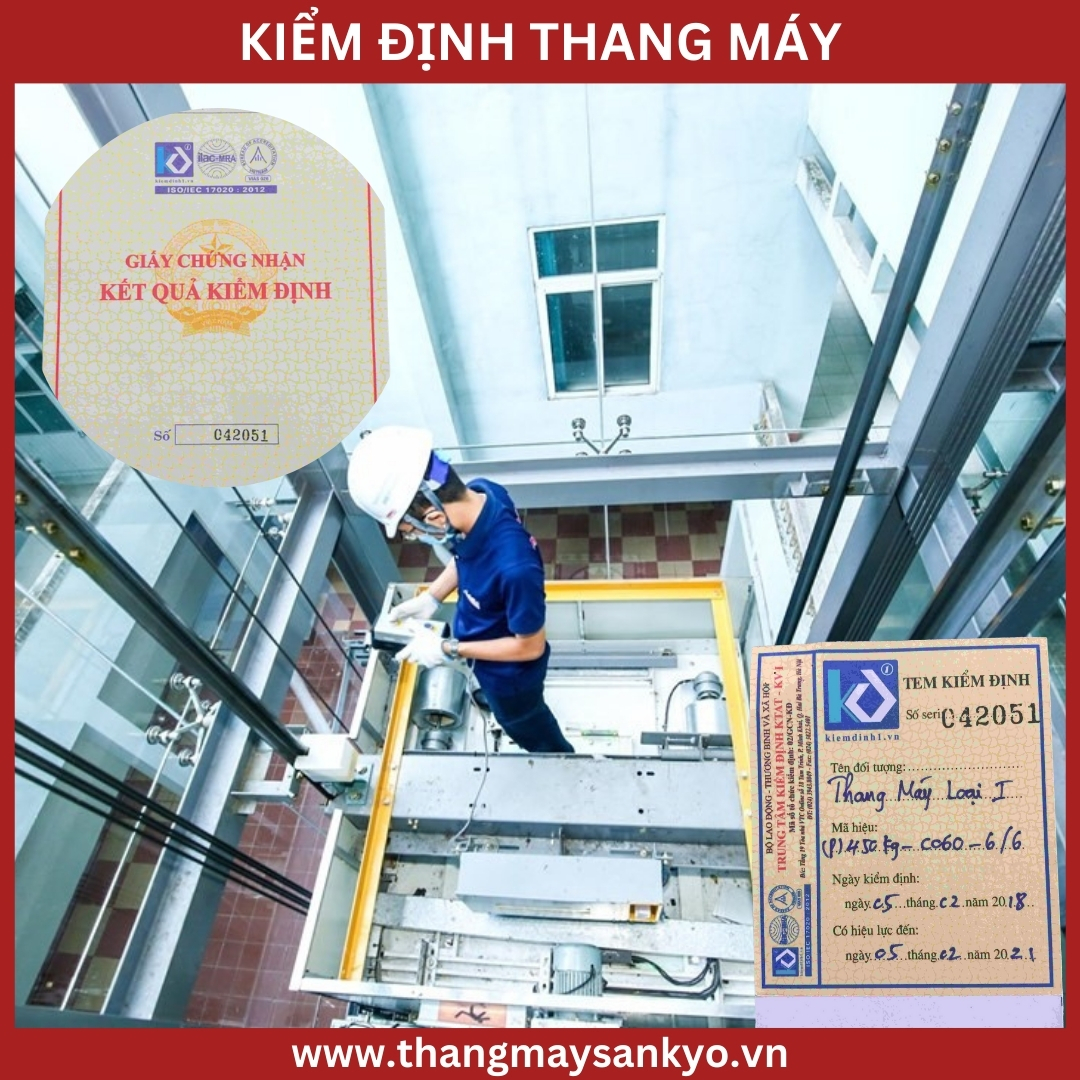
In this context, SANKYO Elevator will present the regulations related to elevator inspection period and 5 important points to note when inspecting elevators that everyone using elevators needs to understand.
SEE MORE PRODUCTS:
WHY ELEVATOR INSPECTION?
Elevator inspection not only aims to ensure safety during operation but also brings many important benefits:
Increase labor productivity: Ensuring stable elevator operation helps increase labor productivity, because working time is not interrupted by technical problems.
Reduced compensation costs: Elevator safety inspections helpreduce the risk of work accidents, thereby reducing compensation costs and legal consequences that businesses may face.
Ensuring safety for people and goods: The elevator inspection processensures that the elevator safely transports both people and goods, preventing possible incidents during movement.
Important legal evidence: Elevator inspectionisa necessary legal evidence, not only providing proof of safety compliance but also assisting insurers and customers in the process of assessing and confirming the safety of the equipment.
Compliance with occupational safety laws: Carrying outelevator inspectionsis compliance with legal regulations related to the use of equipment, especially when there are strict requirements on occupational safety.
.jpg)
In short, elevator inspection is not only a safety measure but also brings many benefits in terms of labor efficiency, reduces costs and increases the legal reputation of the business.
REGULATIONS ON ELEVATOR INSPECTION
Pursuant to Article 9 of Circular 12/2021/TT-BLDTBXH dated September 30, 2021 of the Minister of Labor, War Invalids and Social Affairs, the time limit for technical safety inspection of elevators is as follows:
- The period for periodic technical safety inspection for elevators installed in apartment buildings, offices, shopping malls, hospitals, hotels, factories or in public areas is every two (02) years.
- The period for periodic technical safety inspection for elevators installed in buildings other than those installed in apartment buildings, offices, shopping malls, hospitals, hotels, factories or in public areas is every three (03) years.
- The periodic technical safety inspection period for elevators that have been in use for more than 15 years is once every one (01) year.
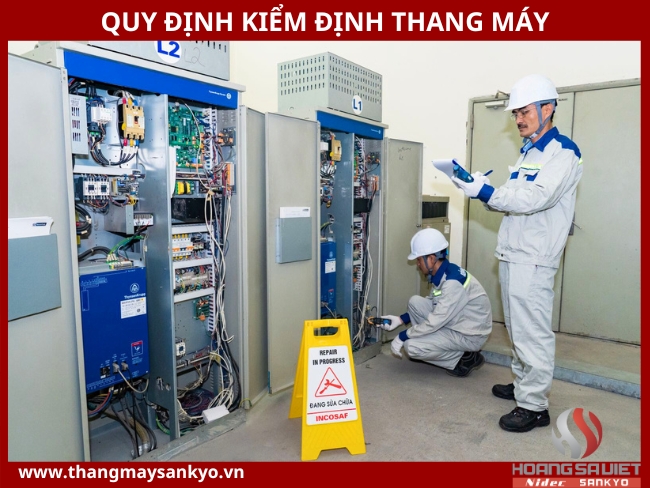
Note: Depending on the condition of the equipment, the safety technical inspection period may be adjusted for a shorter period by the decision of the inspector, which is carried out based on the consensus with the organization or individual that owns or manages the elevator. In case of shortening the safety technical inspection period, the inspector must detail and clearly state the reason for shortening in the inspection report.
Because the home elevator is due for inspection in November 2023, according to Clause 2, Article 9 of Circular 12/2021/TT-BLDTBXH , the elevator at this project must undergo periodic technical safety inspection, specifically every three (03) years.
For your home elevator, if this elevator has been used for more than 15 years, the periodic technical safety inspection period is determined to be one (01) time per year.
SEE MORE PRODUCTS:
ELEVATOR INSPECTION FORM
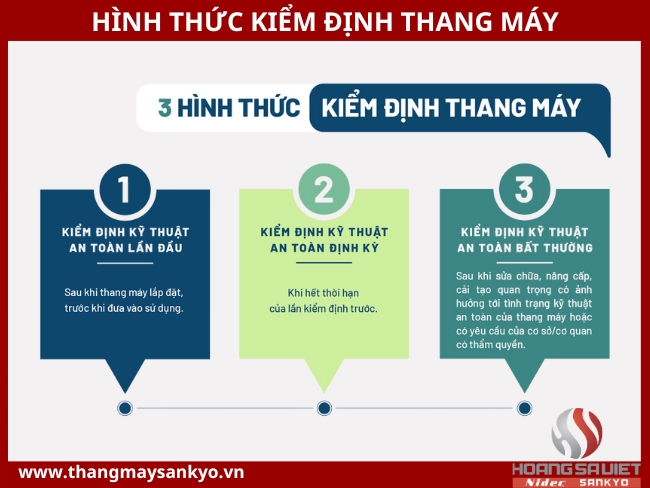
PERIODIC ELEVATOR INSPECTION PERIOD ACCORDING TO THE PERIOD OF ELEVATOR USE
The periodic elevator inspection intervals have been detailed in Circular 54/2016/TT-BLDTBXH and depend on the specific stage of use of the elevator. Below is a summary of the elevator inspection intervalsdepending on the stage of use:
Regular (under 10 years): Lifts are inspected every 3 years to ensure they continue to meet safety and technical standards. This means the lift will undergo a full assessment to ensure safe and efficient operation throughout that period.
10 - 20 years: Electric elevators that have been in service for more than 10 years will be placed on a periodic inspection program with a period of 02 years. In the case of elevators that have been in service for more than 20 years, the inspection period is shortened to 1 year. This emphasizes the importance of carrying out high-intensity inspections for older elevators to ensure their safety and performance.
According to national technical standards: If the elevator inspection periodis specified in national technical standards, the inspection process will be conducted in accordance with the provisions of that standard.
Manufacturer or user requirements: If the manufacturer or user requires a shorter elevator inspection period than the general regulations, the inspection will be carried out according to that specific requirement.
Shorten the elevator inspection period: When shortening the inspection period, the inspector must clearly and specifically state the reasons in the inspection report. This action is to ensure the transparency and reliability of the inspection process.

Elevator inspections play a vital role in ensuring the safety and performance of the equipment. This not only enhances the confidence of users in enjoying elevator services in buildings and constructions, but also means protecting them from risky situations that may arise due to improperly inspected equipment.
SEE MORE PRODUCTS:
UPDATE CURRENT ELEVATOR INSPECTION PRICES
According to Circular 41/2016/TT-BLDTBXH dated November 11, 2016 of the Minister of Labor, War Invalids and Social Affairs , the costs for elevator inspection are prescribed as follows:
- Elevator under 10 floors: 2,000,000 VND/device.
- Elevator from 10 to 20 floors: 3,000,000 VND/device.
- Elevator over 20 floors: 4,500,000 VND/device.
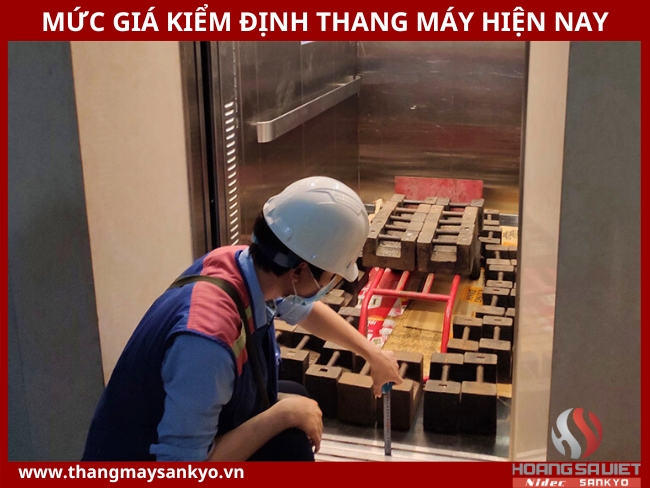
CASES REQUIRING TECHNICAL SAFETY INSPECTION OF ELEVATORS
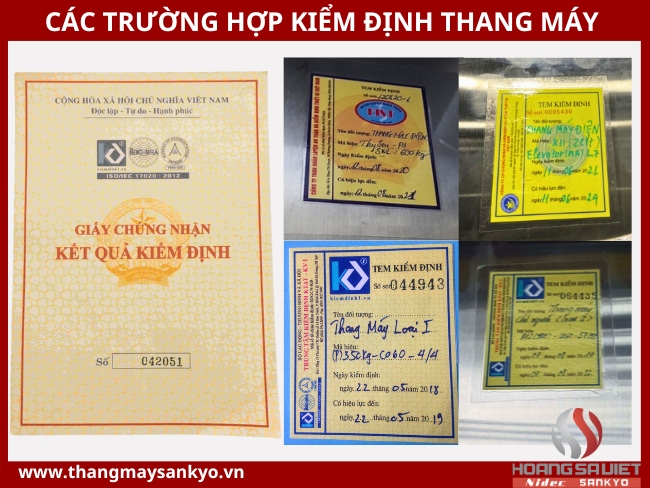
The process of technical safety inspection for elevators plays an important role in ensuring that the equipment operates properly and is safe for users. Below are specific situations when elevator inspection is required :
1. Inspection after elevator installation
Once the lift has been installed, the first inspection is vital to ensure that the equipment meets all safety and technical standards. This assessment is usually carried out under the supervision of a specialist inspector, ensuring that every aspect of the lift is thoroughly inspected and assessed.
2. Periodic elevator inspection over time
Conducting periodic elevator inspections over time is an important measure to monitor and evaluate the operating status of elevators over time. Normally, the period of periodic elevator inspections is determined according to the provisions of Circular 54/2016/TT-BLDTBXH . Performing this periodic elevator inspection not only helps prevent incidents but also ensures that the elevator continues to meet safety standards after each period of use.
3. Elevator inspection after repair, upgrade or as required by authorities
After each time an elevator undergoes repair, upgrade or regulatory compliance, inspection becomes an important step to ensure that the changes and improvements comply with safety and technical standards. This process not only ensures that the elevator continues to function properly but also prevents any risks that could endanger the users.

Elevator inspections in these cases focus not only on ensuring safety but also on evaluating performance and compliance with technical standards. This action not only helps protect life and property but also maintains a positive image of the brand and reputation of the organization that owns the elevator.
SEE MORE PRODUCTS:
ELEVATOR INSPECTION PROCESS
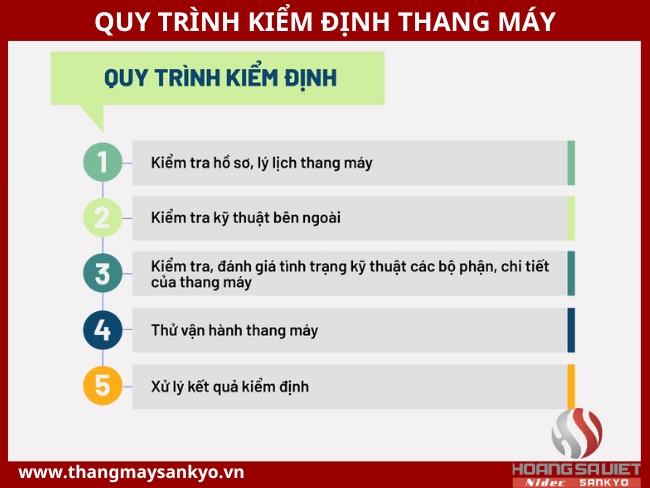
IMPORTANT NOTES WHEN INSPECTING ELEVATORS
Elevator inspection is not only a legal obligation, but also plays an important role in ensuring the safety and performance of the equipment. Here are 5 important things to note when inspecting an elevator :
1. Legal obligations and List of Machinery and Equipment
Elevator inspection is a legal responsibility under the State's regulations, especially in the list of machines and equipment with strict requirements on labor safety, including elevators. Circular 36/2019/TT-BLDTBXH has regulated this list, emphasizing the importance of inspection to ensure elevators comply with safety and technical standards.
2. Technical Standards and Regulations
Technical standards and regulations such as QCVN 02:2011, QCVN 26:2016, TCVN 6395:2008 are the basis for assessing the safety and performance of elevators. The requirements for construction, installation and safety conditions are specified in these standards, and inspection according to them helps ensure the elevator operates safely and efficiently.
3. Periodic inspection period
Periodic elevator inspection is not only a regulation but also determines the safety and reliability of the equipment. According to Circular 54/2016/TT-BLDTBXH , the inspection period is determined based on the period of use. Performing inspection on time helps prevent incidents and ensure the elevator operates properly.
4. Inspection costs
The cost of elevator inspection is not only an investment in safety but also a strategy to minimize risks and costs later. The inspection cost, regulated by Circular 41/2016/TT-BLDTBXH , depends on the type of elevator, quantity, location and specific requirements of the customer.
5. Consequences and Penalties for Failure to Inspect
Ignoring the inspection process can cause many dangerous consequences for users. The quality of elevator operation is not guaranteed, life-threatening incidents can occur. In addition, according to Circular 41/2016/TT-BLDTBXH , failure to conduct inspection can be punished, with the penalty depending on the level of violation.
.jpg)
Elevator inspections are not only a legal requirement but also an important measure to ensure safe and efficient operation of elevators over the long term. Understanding the regulations, complying with technical standards and investing in the right inspection costs are key to maintaining a safe and reliable elevator system.
In the context of an increasingly developed society, the safety and quality of elevators play an undeniable role in daily life. Understanding the regulations on elevator inspection periods and important notes not only keeps our working and living environments safe but also contributes positively to the prosperity and sustainable development of the community. SANKYO Elevator wishes to share and support everyone to take the necessary measures, thereby ensuring that the use of elevators is not only safe but also brings confidence and peace of mind.
1111111111111111111111
“Hoang Sa Viet Elevator - Always with you on every floor!”
HOANG SA VIET ELEVATOR - THE LEADING PRESTIGIOUS ELEVATOR COMPANY IN VIETNAM
Consultant: 0942.222.075 Office Headquarters: 184/20 Le Dinh Can, Tan Tao Ward, Ho Chi Minh City Hanoi Headquarters: No. 229, Van Tri Street, Van Noi, Dong Anh, Hanoi Website: thangmaysankyo.vn Email: hungpham@hoangsaviet.com
PRICE SUCCESSFUL!
PRICE UNSUCCESSFUL!
Hotline 0707.025.789
Email hungpham@hoangsa



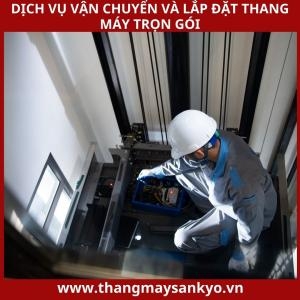
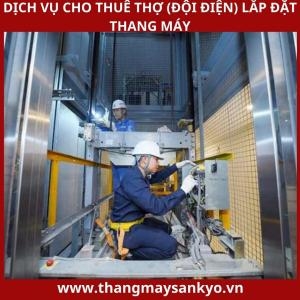
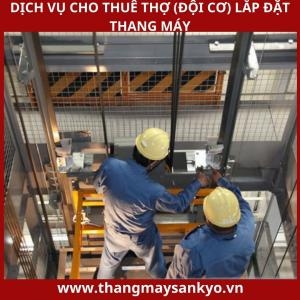

.png)
.png)
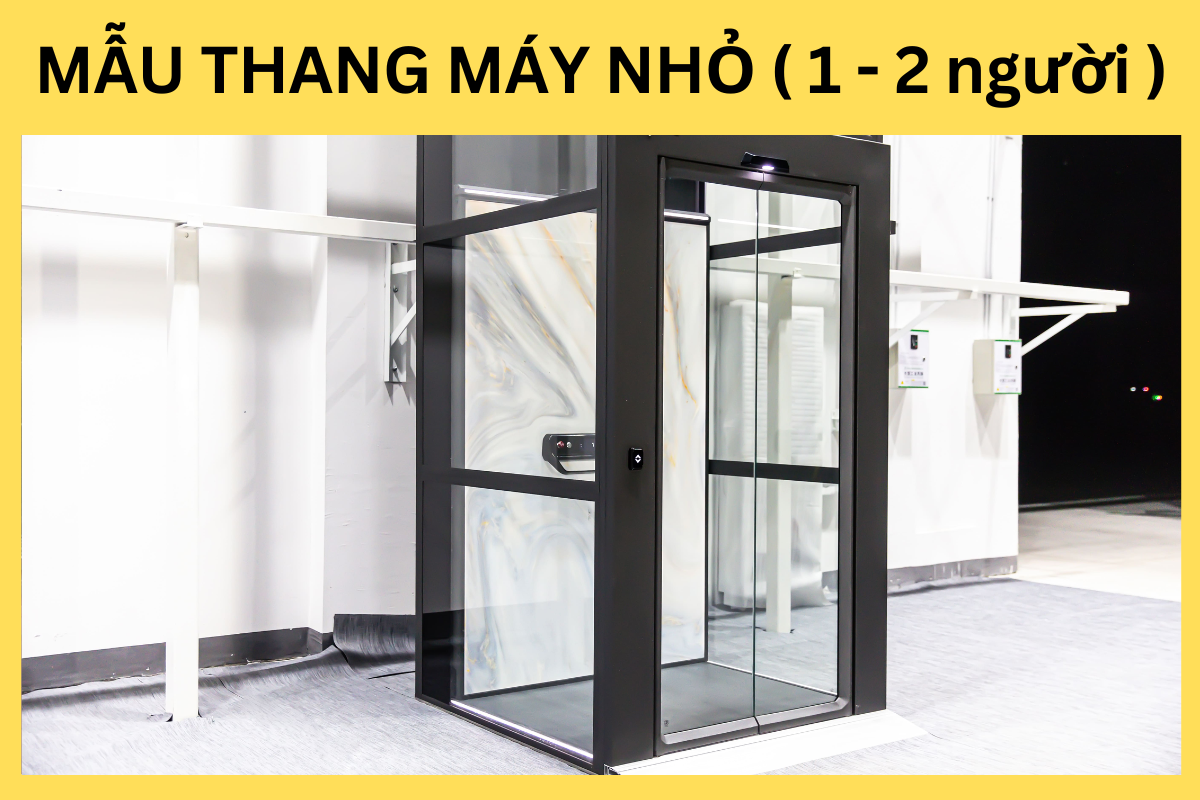
.png)

